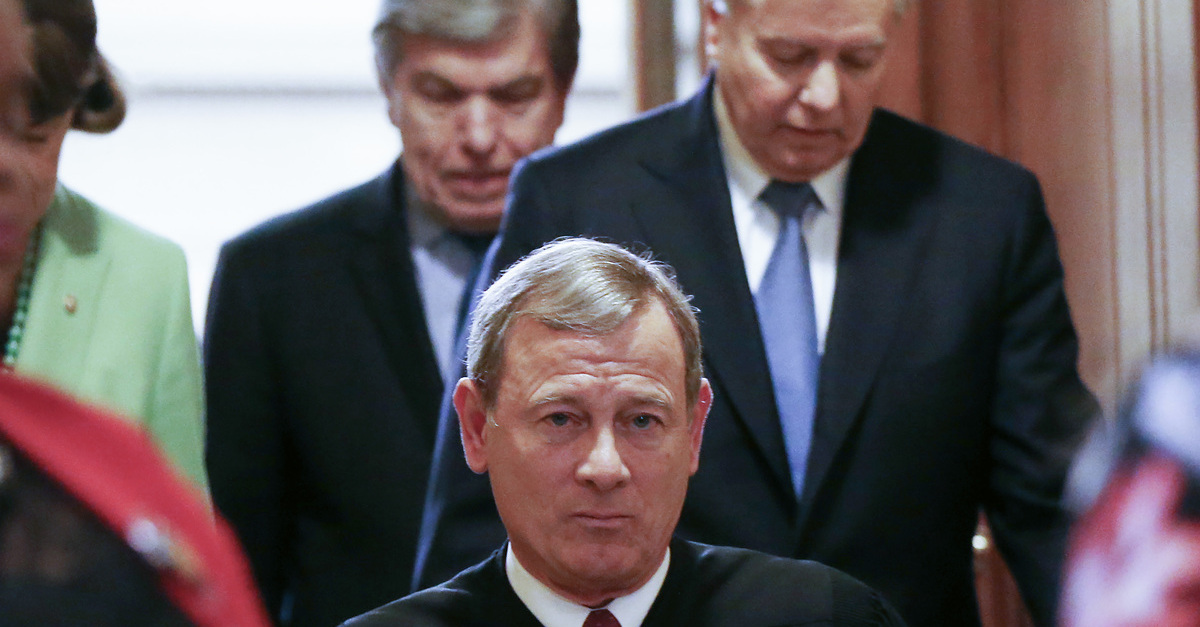
Chief Justice John Roberts joined the liberal wing of the Supreme Court in rejecting an application for a stay that was requested by Republican lawmakers in Pennsylvania. The GOP asked the Supreme Court to put a stop to a state Supreme Court ruling that extended the deadline—by three days—for receiving and counting mail-in ballots for November’s presidential election.
But the 8-justice Supreme Court on Monday denied the application for the stay. The order only said that conservative Justices Clarence Thomas, Samuel Alito, Neil Gorsuch and Brett Kavanaugh would have granted the application. There was no other message, leading us to the necessary conclusion that Chief Justice Roberts, and liberal Justices Stephen Breyer, Sonia Sotomayor and Elena Kagan denied the application.
The Supreme Court’s rules say that five justices must vote in order to grant a stay. Here we had a 4-4 tie.
The Pennsylvania Supreme Court ruled in favor of Democratic state lawmakers in September, finding that mail-in ballots received within three days of Nov. 3 must be counted so long as the envelopes are postmarked by Nov. 3. The ruling also said that ballot envelopes received by Nov. 6 that are not postmarked at all would also be counted, unless a “preponderance of the evidence demonstrates that it was mailed after Election Day.”
In response, the State Senate Republican Caucus filed a legal brief seeking an emergency stay from the U.S. Supreme Court pending the filing and outcome of a petition for a writ of certiorari. In other words, Republicans argued that the state court ruling “clearly violates federal law and the United States Constitution.” They wanted that ruling halted until they file a petition for SCOTUS to take up the case and until reaches a conclusion about said petition.
“By judicial fiat, that decision removed the principal method by which Pennsylvania structures its post-election process, permitting votes to be cast after Election Day and counted after Election Day,” the Republican lawmakers wrote. “By doing so, the decision creates multiple election days after November 3, 2020, in violation of federal law since votes can be cast (i.e. voted) after November 3, 2020. The decision also usurped the Pennsylvania General Assembly’s constitutionally-delegated authority to set the times, places, and manner of federal elections in Pennsylvania. This was done without any delegation of power to the state’s Supreme Court or legislative consideration whatsoever.”
Legal observers immediately noted that this order very well may have gone the other way with Amy Coney Barrett on the court.
But others believe that it’s still possible this victory for Democrats could be short-lived, depending on when Barrett is confirmed to the Supreme Court.
Jerry Lambe contributed to this report.
[Image via Mario Tama/Getty Images]